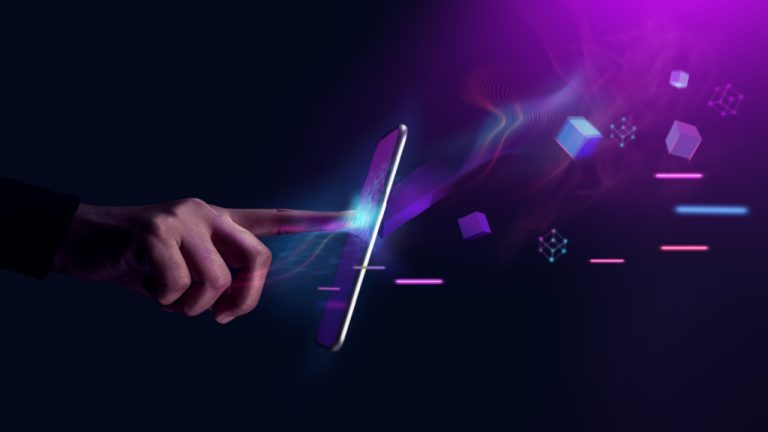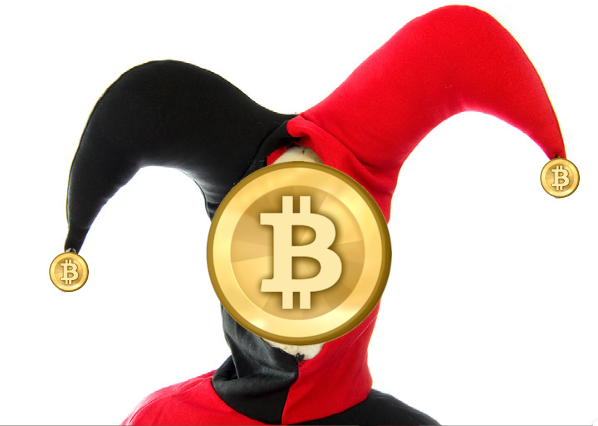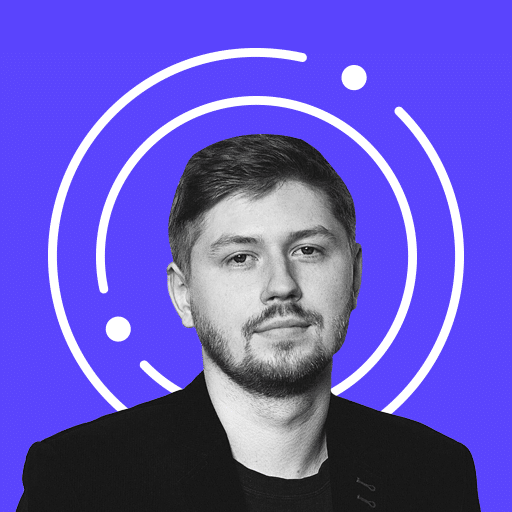
A blockchain-powered decentralized network can offer a “much greater level of security and ownership” of data compared to traditional telecom operators, Micky Watkins, the founder and CEO of World Mobile, has said. Watkins also claims that the flexibility of such a decentralized network means users can “rapidly scale and adjust the network to better reflect demand.” This, in turn, can result in more reliable connections for users.
A Decentralized Mobile Network Offers Users a ‘Greater Level of Security’
Watkins also told Bitcoin.com News that his company’s attempt to bring the internet to the masses via innovative technologies is comparable to past efforts by tech giants like Google and Facebook. The World Mobile founder, however, insisted that his company is not competing with tech giants. Instead, World Mobile — a telecommunication network built on a blockchain — sees tech giants as collaborators, he said.
In written comments sent to Bitcoin.com News, Watkins explained how the company’s infrastructure model and blockchain technology enable his group to overcome the scalability challenge. He also touched on how ordinary people or subscribers can help secure the network by acquiring or hosting nodes.
Below are Watkins’ answers sent to Bitcoin.com News via Telegram.
Bitcoin.com News (BCN): The internet is a core pillar of the modern information society, yet an estimated two billion people are still without access. This may be because it is not commercially viable for traditional telecom operators to bring the internet to certain geographical regions. Do you believe a blockchain-powered decentralized network is capable of connecting underserved users in an economically efficient manner?
Micky Watkins (MW): World Mobile utilizes a unique solution which combines two core elements. The first is our hybrid dynamic network, which consists of a decentralized network of what we call ‘Airnodes.’ Airnodes range from small, wifi-hotspots, right up to Aerostats, which are lighter than air balloons that act as telecommunications towers in the sky. They contain radio equipment and distribute coverage over a much wider area than traditional cell towers, between 75km-100km. This hybrid dynamic network reduces rollout and maintenance costs, allowing for profitable operations in under-connected regions.
This hybrid dynamic network is then connected to our blockchain-powered sharing economy, which incentivizes individuals and businesses to connect their communities with our infrastructure, and subsequently rewards them for doing so.
These two elements combine to significantly reduce both the Capex [capital expenditure] and Opex [operational expenditure], resulting in a network which is at least 12 times cheaper to deploy than a legacy model.
BCN: What advantages, if any, does a decentralized wireless network have over traditional telecom operators and why should a subscriber choose a decentralized wireless network over a traditional carrier?
MW: I’d suggest that once you understand the advantages of a decentralized operator like World Mobile, there will no longer be a choice to make.
Firstly, the reduced operating cost is passed on to our customers and in Zanzibar, the home of our first commercial deployment, our data bundles are almost 50% cheaper than the average. That alone is impressive, but when combined with the greater accessibility of our network, especially in under-connected and rural locations, it becomes an even more attractive offering.
Secondly, by integrating blockchain, we offer customers a much greater level of security and ownership of their data. It’s a well-known fact that many traditional operators profit from selling customer data, including location data and financial information. Customer and transaction data on World Mobile is encrypted on the blockchain and is immutable. This level of transparency is unattainable when using a traditional operator.
Finally, the flexibility of our infrastructure means we can rapidly scale and adjust the network to better reflect demand, resulting in more reliable connections for our customers.
BCN: Your company claims to be the first global mobile network built on blockchain. Can you tell us what your infrastructure looks like and how the blockchain technology fits into it?
MW: We have developed the World Mobile Chain, a Proof-of-Stake network that is a sidechain of Cardano. The World Mobile Chain is used to process network usage data and transactions. When a user purchases credit and starts to consume data through one of our Airnodes, their data traffic is encrypted and passes through our validator nodes (Earthnodes) which process and authenticate the network usage.
A record of this usage is then stored on a distributed ledger and the participants supporting the network i.e. Airnode Owners, Hosts and Earthnode Operators are rewarded with a share of the revenue, through our native utility token WMT.
BCN: Over the last decade or so, a number of technology giants including Facebook, Google, and Spacex have tried to bring Internet connectivity to the unconnected using innovative technologies. Their goals are similar to yours. Do you see them as collaborators or competitors?
MW: We don’t see them as competitors. Starlink has a great product, but it’s not a solution for the challenge of connecting the unconnected at scale. The upfront cost of the hardware limits accessibility and the lack of subsidies outside the USA makes it unviable in many parts of the world. That said, we do see them as collaborators and World Mobile utilises Starlink as a backhaul to provide connectivity in rural locations.
BCN: World Mobile is said to be a people-run mobile network but it is also known that mobile networks are highly capital-intensive and complex. What are the different ways, if any, in which subscribers can own and operate a mobile network infrastructure?
MW: World Mobile offers subscribers a number of ways to participate and benefit from the sharing economy. You could opt to buy an Airnode. Our entry-level Airnodes will be priced in a similar bracket to popular consumer tech products and will provide owners the opportunity to connect their community, or unconnected communities around the world. This is where Airnode hosts come in. An Airnode owner can choose to host an Airnode at their location or they can allow us to connect them to a host in a different part of the world. The host takes on responsibility for operating and maintaining the Airnode on the ground. Both owners and hosts earn a share of the revenue when mobile users connect to their Airnodes.
It doesn’t stop there though. Our recently launched Android application allows users to actively contribute to network expansion, through a feature currently called ‘scan for points.’ This feature allows users to utilize their smartphone radios to help identify connectivity weak spots and potential Airnode locations, rewarding them with points that can be redeemed in the app’s marketplace.
BCN: According to reports, you have completed field tests in several countries including Nigeria, Kenya, Mozambique, and Pakistan. Scalability often becomes an issue when onboarding millions of users. Can you tell our readers how you solve scalability to provide affordable and reliable internet access to both rural and underserved areas worldwide?
MW: Scalability might be a challenge for a centralized mobile network operator, which takes on responsibility for the deployment and operation of infrastructure, but scalability is a built-in feature of the World Mobile Network.
Our unique infrastructure model and blockchain-powered sharing economy provide the foundations needed to support and incentivize the rapid rollout of distributed infrastructure wherever demand might be.
What are your thoughts about this interview? Let us know what you think in the comments section below.





